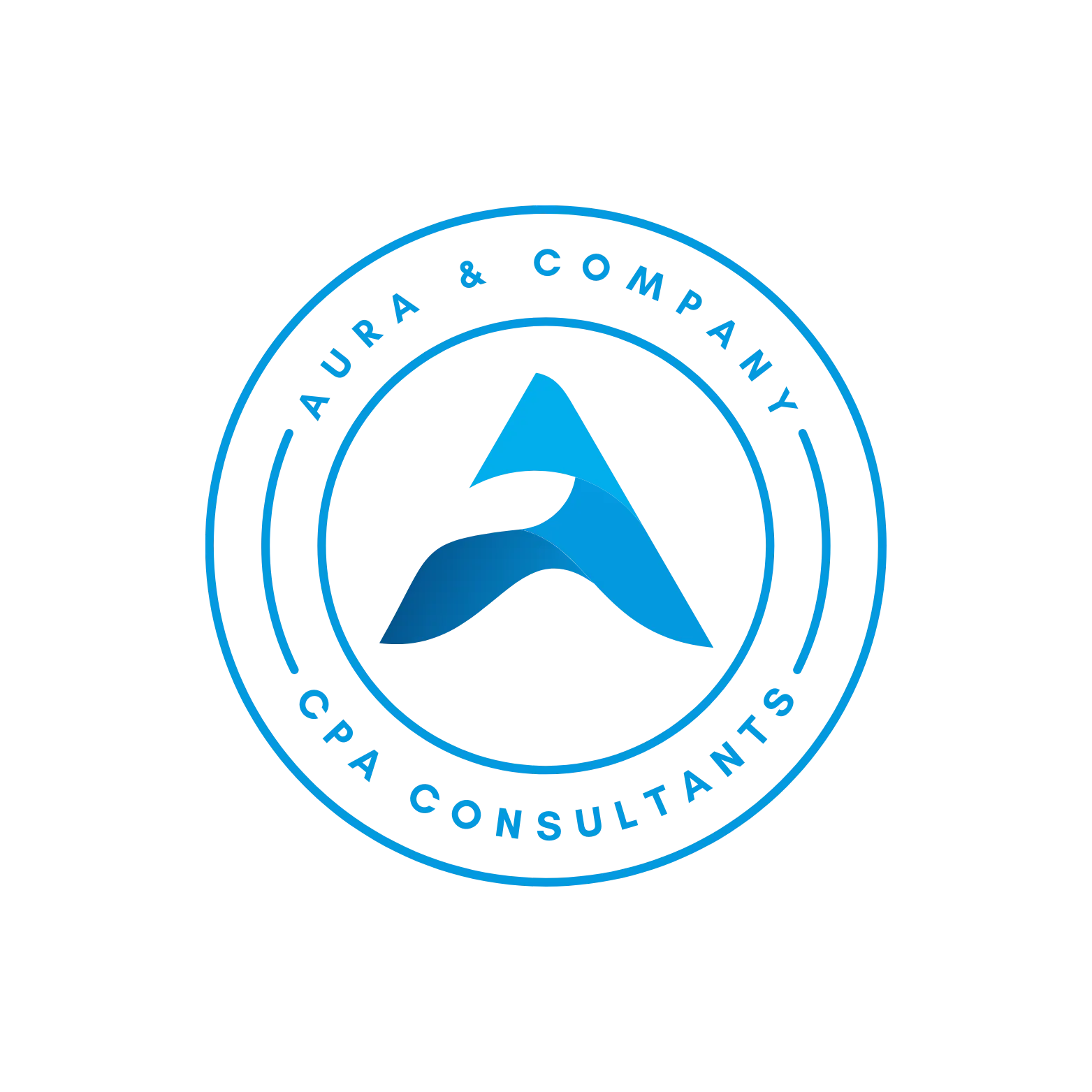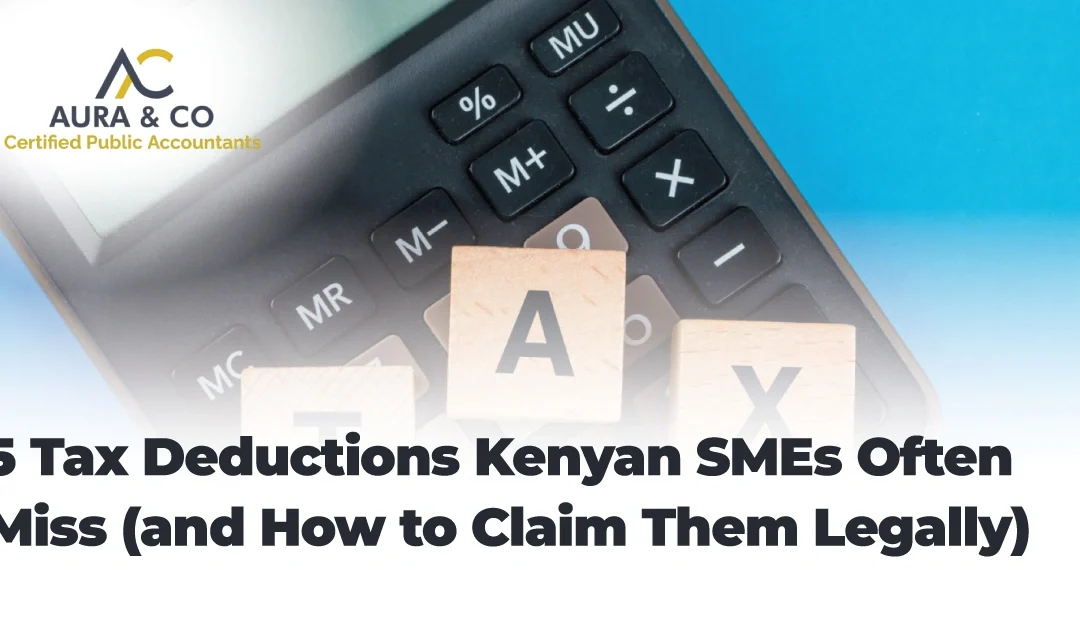The Hidden Value of Missed Tax Deductions for SMEs
SMEs power Kenya’s economy, but many leave money on the table when filing tax returns because they miss legitimate deductions or misunderstand how to document and claim them.
This guide, written for Aura & Co’s SME audience, explains the top five tax deductions Kenyan SMEs commonly miss, why they’re missed, exactly how to claim them under current Kenyan law and practice, and practical controls Aura & Co recommends so clients don’t lose relief again.
A typical SME that optimizes five legitimately claimable deductions can materially reduce taxable profit and improve cash flow — freeing resources for hiring, inventory, or reinvestment.
The difference is not only tax saved today but also fewer disputes with KRA later, faster VAT/bad-debt recoveries, and stronger bookkeeping discipline.
1️⃣ Capital Allowances & Investment Deductions (Including First-Year Claims)
Kenya doesn’t allow accounting depreciation as a tax deduction. Instead, businesses claim capital or investment allowances for plant, machinery, commercial buildings, and qualifying capital expenditure.
Why SMEs Miss It:
Confusion between accounting depreciation and tax allowances, poor asset registers, or failing to claim accelerated/investment allowances in the first year.
How to Claim:
Maintain a simple asset register with acquisition details, classify each asset correctly, and apply the right method (reducing balance or first-year allowance). Keep invoices and payment proofs.
Aura & Co Support:
We help build/validate asset registers, classify assets into KRA categories, compute optimal tax claims, and prepare schedules for your tax return.
2️⃣ Bad Debts & VAT on Bad Debts (and the Timing Traps)
Businesses can deduct commercial bad debts and recover VAT previously paid when the sale is written off — within statutory timeframes.
Why SMEs Miss It:
No policy for identifying bad debts, missing KRA timelines, or lacking recovery documentation.
How to Claim:
Keep evidence of recovery efforts, document the write-off, and claim in the correct year. For VAT refunds, observe KRA deadlines.
Aura & Co Support:
We document bad-debt evidence, prepare VAT refund/offset applications, and advise on timing for income-tax deductions.
3️⃣ Pre-Trading/Start-Up Expenses and Qualifying Start-Up Costs
Expenditures before a business begins trading can be deductible in the first year or as allowed by law.
Why SMEs Miss It:
Mixing personal and business expenses, losing invoices, or expensing incorrectly after trade begins.
How to Claim:
Maintain a separate pre-trading ledger and classify qualifying expenses such as market research and registration fees.
Aura & Co Support:
We set up pre-trading ledgers, certify qualifying expenses, and prepare supporting documentation for your tax return.
4️⃣ Employee-Related Reliefs & Statutory Contributions (PAYE-Linked)
Employers must correctly apply statutory deductions and allowable reliefs (NHIF, NSSF, housing levy, etc.).
Why SMEs Miss It:
Incomplete payroll documentation, misapplied reliefs, or outdated payroll systems.
How to Claim:
Ensure payrolls apply reliefs correctly, separate employer contributions, and maintain remittance proofs.
Aura & Co Support:
We perform payroll health-checks, configure payroll systems, and prepare reconciliations to ensure compliance.
5️⃣ Business-Use-of-Home, Motor and Mixed-Use Expenses
Some home or vehicle expenses are deductible if properly apportioned and documented.
Why SMEs Miss It:
Lack of apportionment policies, poor records, or fear of KRA scrutiny.
How to Claim:
Use defensible methods (e.g., square-meter basis or logbooks) and maintain records of usage and payments.
Aura & Co Support:
We offer apportionment templates, logbooks, and audit-ready documentation.
📋 Practical Documentation Checklist
-
Invoices and supplier receipts
-
Proof of payment (bank/M-Pesa slips)
-
Asset register with cost and usage details
-
Bad-debt recovery file
-
Payroll register and statutory receipts
-
Home-office and vehicle logbooks
-
Board minutes for major purchases or write-offs
⚠️ Common Pitfalls and How to Avoid Them
-
Don’t confuse accounting depreciation with tax capital allowances.
-
Always keep short narratives explaining each deduction.
-
Track dates to avoid missing KRA claim timelines.
-
Adopt simple bookkeeping systems to support claims.

